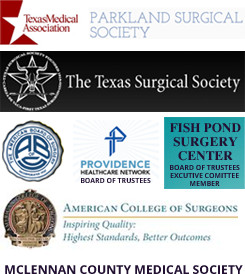Preparing for Surgery
These are general pre-operative instructions that apply to most procedures that we do. If you have specific questions about your surgery related to pre-operative preparations that are not answered here, please contact your surgeon.
DO NOT EAT OR DRINK ANYTHING AFTER MIDNIGHT ( No mints/No gum/No smoking/chewing tobacco)
Pre-op interviews are conducted by the facility where your surgery will occur. Some are conducted over the phone, while others require a visit to the facility.
Many times your surgeon will request pre-operative lab to be drawn. This will be done at the facility during the pre-op visit or at an outside lab. This lab should be done in a timely fashion so that results will be available before the operation.
If you are having colon surgery, or your surgeon instructed you to take a bowel prep prior to your surgery, click here for bowel prep instructions.
A surgical consent form must be signed before any medication is given. If the patient is a minor a parent or legal guardian must sign the form. Legal guardian must bring proof of guardianship with them to facility. Minors must have a parent or legal guardian at the facility AT ALL TIMES.
Please bring your insurance card and a picture ID with you to the facility the day of your procedure. If you have an advance directive please bring it with you.
If you take daily medications, check with the physician about what to do the morning of your surgery regarding your medication. If you take heart or blood pressure medicines every morning, you may take these the morning of surgery with a TINY sip of water. In most cases you should stop taking Aspirin, blood thinners, or weight loss medicine at least 7 days prior to surgery.
Be sure to inform your surgeon as soon as possible if you are on Coumadin (Warfarin), Plavix, Lovenox, or other prescription blood thinning medications. Stopping these medications should only occur at the direction of a physician. In some cases substitute medications will be used around the time of surgery.
Bathe or shower the morning of your procedure to reduce the risk of infection.
It is extremely important for you to arrive at the hospital/facility at the time indicated. If one case is delayed in starting, the entire Operating Room schedule is pushed back. Therefore, if you do not arrive in a timely manner, your surgery may have to be postponed until later that same day or possibly another day. Also, there may be a possibility that your surgery time may change depending on emergencies. We do everything we can to prevent this, but sometimes it cannot be helped.
Wear loose comfortable clothes that are easy to take off and put on. The facilities are usually cool. Family members may want to bring a jacket for warmth.
Leave all valuables at home including jewelry, watches, money, cell phones, computers, etc. Remove all body piercings. Bring cases for glasses, contact lenses, hearing aids, and dentures.
If you are scheduled for outpatient surgery, arrange for a responsible adult to drive you home. You may NOT DRIVE yourself home. It is also a good idea to have a responsible adult stay with you for the first 24 hours after surgery.

